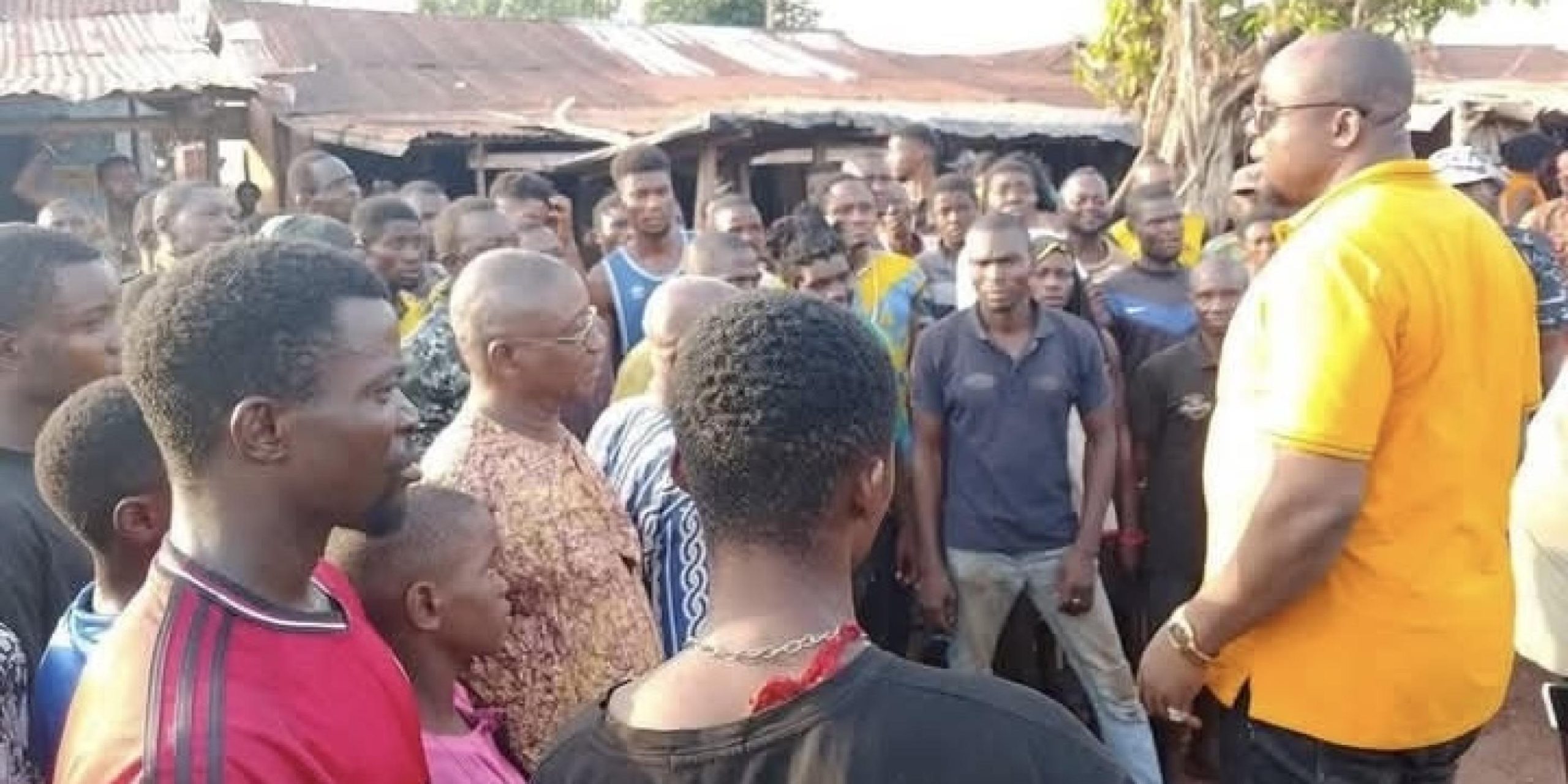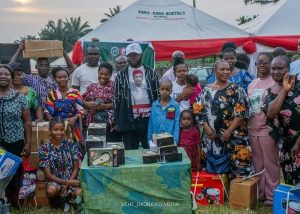Armed Herdsmen Attack Another Enugu Community, Brutally Murder Four Farmers On Farmlands
The agrarian community of Adani in Uzo-Uwani Local Government Area of Enugu State is once again in mourning following the brutal murder of four farmers by suspected armed Fulani herdsmen. The attack, which occurred on Tuesday afternoon, April 8, 2025, has reignited concerns over the persistent insecurity ravaging farming communities in Nigeria’s southeast and middle belt regions.
Despite repeated assurances by government officials and security agencies, the killing of the four farmers—among them women and a tree feller—points to a disturbing pattern of unchecked violence against local populations in rural communities. With tensions already high from previous attacks and a recent spate of kidnappings along the Adani-Ogurugu road, residents now live in perpetual fear.
YOU MAY READ
Ohanaeze Gives South-East Governors 30 Days to Expel Killer Herdsmen or Face State of Emergency
According to community sources and eyewitness reports, the victims were slaughtered in cold blood while working on their farmlands. The attackers, identified by locals as Fulani herdsmen, reportedly struck with sudden precision, using machetes and firearms to execute their victims.
One of the slain, identified as Emenike, was said to be in his early 40s and a cousin-in-law to a resident, Chijindu Omeje. In an emotionally charged phone interview, Omeje confirmed the killings and described the deepening fear and despair gripping the community.
“Yes, four persons including women farmers were killed on Tuesday at Adani farm,” Omeje said. “One of the persons killed is my cousin’s in-law and his name is Emenike. I don’t know his actual age but he is not less than 40 years. The assailants who were all Fulani herdsmen also killed a tree feller.”
YOU MAY READ
We Heard Gunshots on Our Farm Around 2 PM; My Only Son Was Shot Dead – Enugu Widow Recounts How Fulani Herdsmen Killed University Graduate in Fresh Attack
This brutal attack took place as farmers were resuming full-scale cultivation activities, buoyed by the recent onset of the rainy season—a crucial period in Nigeria’s agricultural calendar. For many, farming is not just a way of life, but the only source of livelihood. The attack has not only cost lives but has shattered the already fragile sense of security in the area.
Beyond the farmlands, insecurity has also taken hold of major transportation routes in the region. The Adani-Ogurugu road, which links the community to other parts of Enugu and neighboring states, has been under siege in recent weeks.
Reports of kidnappings, armed robberies, and disappearances have become a daily occurrence. Residents now avoid the route entirely or travel in groups and only during the day. Commercial and agricultural activities have been severely disrupted as a result.
YOU MAY READ
Many K!lled as Suspected Herdsmen Attack Ebonyi Community
Omeje further explained:
“The road from Adani to Ogurugu is a no-go area now as kidnappers believed to be the same Fulani herdsmen have taken over the road. Several people have been kidnapped along the road in recent weeks. The chairman of the local government is helpless. We need help. We need government intervention.”
The attack has ignited widespread outrage in Uzo-Uwani and beyond. Many residents accuse the government and security agencies of inaction and failure to protect lives and property.
Social media platforms are awash with angry posts and calls for justice. Some are demanding the resignation of local officials while others are calling for the deployment of military troops to the region.
Despite the tragedy, local government officials maintain that steps are being taken to address the crisis. Speaking during a security awareness campaign, Council Chairman Barr. Chijioke Ezeugwu assured residents that measures were in place to enhance security across affected communities.
YOU MAY READ
10 K!lled as Rival Cult Groups Clash Over Oil Company Levies in Obelle Community
“Farming is very important to all of us. Food security is the worst form of insecurity. Therefore, we will not allow food insecurity to surface in this part where we have started to witness a substantial return of peace and stability,” Ezeugwu said.
Ezeugwu claimed that local security operatives, including members of the Nigerian Police, military, and neighborhood watch groups, had been deployed to comb surrounding bushes and secure farmlands.
The Enugu State Government has been criticized for not doing enough to curb the menace of herdsmen-related violence. Although the administration has launched various initiatives aimed at community policing and rural security, many say these efforts have not translated into tangible improvements on the ground.
On April 8, 2025, the same day the attack occurred, Ezeugwu reportedly visited affected areas alongside the Chief Security Officer of the Enugu Government House to assess the security situation.
During his tour, he urged residents to support government efforts by reporting suspicious activities and cooperating with security operatives. However, skepticism remains high among the populace, many of whom feel betrayed and abandoned by the authorities.
Further compounding the issue is the denial of the attack by the Enugu State Police Command. When contacted for comment, the State Police Public Relations Officer, SP Daniel Ndukwe, dismissed reports of the killings as unsubstantiated.
“There is no report of such an incident please,” he said in a text message sent to journalists.
This statement has drawn the ire of community leaders and human rights activists who accuse the police of downplaying violence and shielding perpetrators.
The killings in Adani are part of a disturbing trend of violence against farmers in Nigeria’s southeastern and middle belt regions. Over the past decade, clashes between nomadic herders and sedentary farmers have escalated into full-blown crises.
In many cases, disputes over grazing rights, land use, and water resources have devolved into cycles of attacks and reprisals. Communities in Benue, Plateau, Nasarawa, and parts of Enugu and Ebonyi States have suffered similar fates.
Security analysts say the failure to implement comprehensive livestock management policies, such as ranching, has exacerbated the problem. Despite numerous promises by successive governments to address the root causes, little has changed.
The implications of the Adani killings go beyond loss of life. They threaten the food security of the region and the economic survival of thousands of families.
Adani, known for its rice and cassava production, is a vital contributor to Enugu State’s agricultural output. With farmlands now unsafe and laborers fleeing in droves, the outlook for this year’s harvest is bleak.
A local cooperative leader, Mrs. Ngozi Aniekwe, lamented the impact of the killings:
“We have lost not only our loved ones but also the confidence to go back to the farms. Who will feed our children? What will we harvest this year? We are finished if this continues.
Beyond the statistics and policy debates are the grieving families, orphaned children, and widowed spouses. For them, the loss is personal and irreversible.
In one of the homes visited by SaharaReporters, a mother of three who lost her husband in the attack wept inconsolably. Her children clung to her, unaware of the full gravity of their father’s absence.
“They killed him like an animal. He went to farm so we could eat, now he is gone,” she said.
The trauma of such loss is profound and long-lasting, especially in communities where access to psychological support or trauma counseling is virtually non-existent.
The question now is: What next for Adani and other similarly afflicted communities?
Security experts advocate a multi-pronged approach:
- Strengthening community policing structures.
- Deploying well-equipped security personnel to high-risk areas.
- Introducing long-term livestock management solutions.
- Promoting inter-communal dialogue and reconciliation efforts.
In the short term, residents want immediate action—military intervention, intelligence gathering, and the arrest of the perpetrators.
The brutal killing of four farmers in Adani is a grim reminder that insecurity in rural Nigeria is not abating. While government officials continue to issue assurances, communities are left to bury their dead, mourn their losses, and fend for themselves.
Unless urgent and sustained action is taken, Adani’s tragedy may soon become just another forgotten headline in a long list of unresolved atrocities. But for the people of Uzo-Uwani, this pain is real, present, and deeply haunting.
Source:SR





